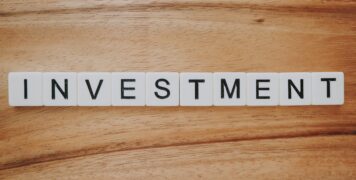Contact
020 4515 6728
info@ccameron.co.uk
Charles Cameron & Associates
Blackfriars Foundry
154-156 Blackfriars Road
London SE1 8EN
On the move
October 27, 2021
Information published was correct at the time of writing
--

Buying a property can be a daunting experience, whether you are planning to move into something bigger, or downsizing. It may be a while since you went through the process, so don’t forget to remind yourself why you’re viewing the property and ask the right questions you need to know to help you make an informed decision before you make an offer. We all know buying a property is usually the single most expensive purchase we’ll ever make, but what may surprise you is that, on average, we only spend around 25 minutes[1] viewing a property before we decide to buy it! To make sure you get the most out of your viewing, we’ve put together a list of basic questions you should consider.
HOW MUCH INTEREST HAS THIS PROPERTY ATTRACTED?
It’s important to know how many other potential buyers are in the running to purchase the property you’re looking at. If you’re the first to view, you’re in a strong position to make an offer. If there have been several other viewings already, you might have some competition. Find out if there have been any previous offers that were rejected, and if the current owner is open to offers below the asking price. Remember that some negotiation is considered normal in the buying process.
WHEN IS THE PROPERTY AVAILABLE?
If you’re buying a newly built property, find out when the construction work is due to be completed so you can move in. If it’s a previously owned property, you’ll need to wait for the current owner to find a new home. This creates a chain, which can add time to the transaction and cause problems if other sales fall through. It’s often unavoidable, though, unless the property is inherited or the owner is moving abroad.
WHAT’S INCLUDED?
There are no set rules regarding what a seller will leave in the property and what they’ll take with them when they move out. So, you should establish this before making an offer. If all the white goods are included, for example, the fridge, washing machine, etc, you might be able to make a higher offer. If there are items you don’t want to remain in the property, like a garden shed, you’ll need to make that request. Similarly, if you’re buying a newly built property, find out if the developer will include the white goods or if you’ll need to buy your own.
WHICH WAY DOES THE PROPERTY FACE?
It’s helpful to know which way the property is oriented, so you know if you’ll be able to enjoy the garden or balcony in the evening, or if the bedrooms are well lit in the mornings. You can ask the current owner, developer or estate agent, and you can also use a compass app on your smartphone to confirm the answer.
WHAT ARE THE NEIGHBOURS LIKE?
With a newly built property, you won’t have the chance to find out about your future neighbours in advance. But, if you’re moving into a previously owned property, you should find out from the current owner if they’ve had any problems with their neighbours, such as noise.
WHAT ARE THE RUNNING COSTS?
When you buy a home, the current owner or developer will provide you with an Energy Performance Certificate (EPC) that will rate the property’s energy efficiency and likely running costs. Newly built properties are usually cheaper to run. With a previously owned property, ask the owner how much they spend on bills to get a clear idea of how much your monthly expenditure will be.



